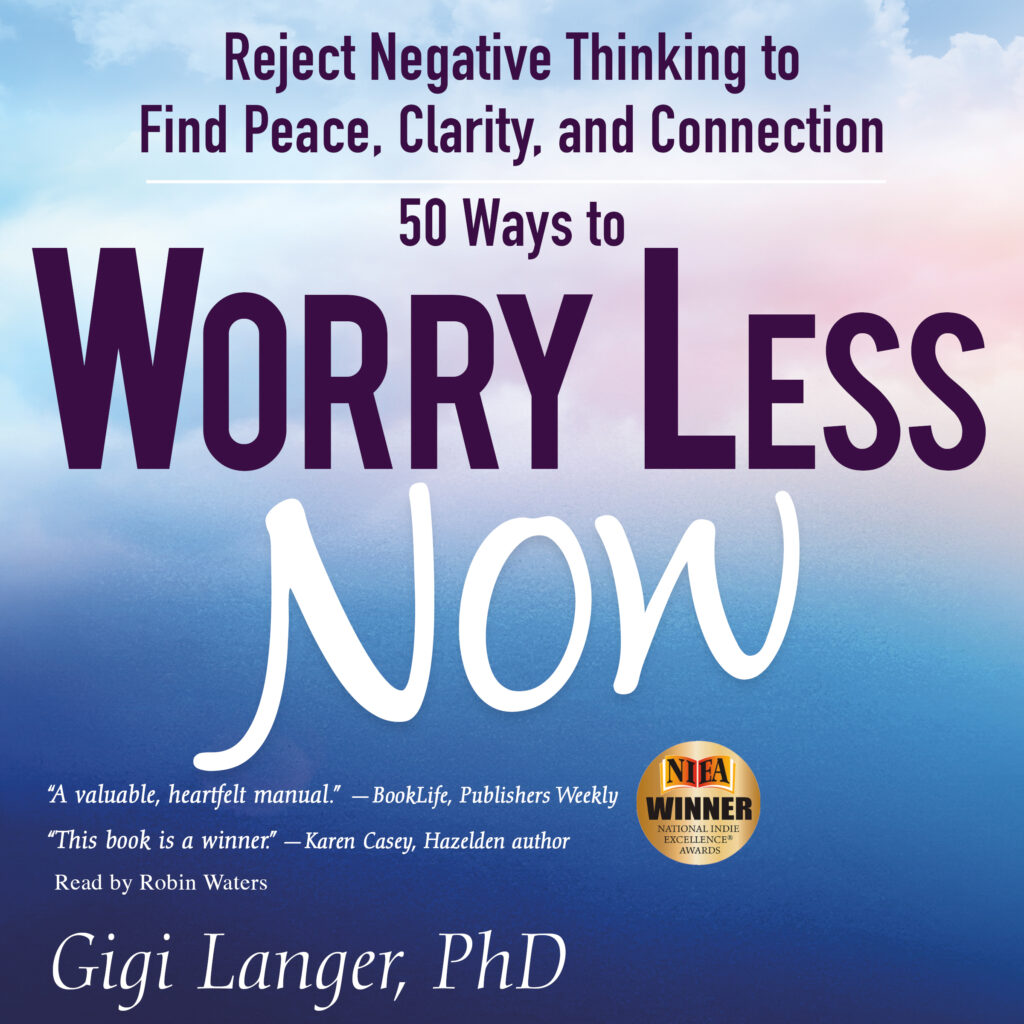
Recently, I became extremely self-critical because I got “too busy” to pray, meditate, and go to meetings. When I hear that voice whispering its nasty lies, I’m reminded of how the “Master-Beaters Club” was born.
Self-Critical Lies
While having coffee one day, some sober women and I began to share how an internal voice constantly criticized us: We were bad people, couldn’t change, or weren’t worthy of love or care. In short, our fearful thoughts were beating up on us.
Suddenly, one woman said, “Well, let’s just call ourselves the ‘master-beaters club!” After a raucous laugh, we had already weakened this character flaw by naming it and laughing at it.
Ever since that day, when that self-condemning voice creeps into my head, I can reject it by having a good laugh as I recall our special “club.”
How to Stop Beating Ourselves up
As I grew in my trust of a Higher Power, I replaced that critical voice with God’s loving presence, often expressed through human angels (sometimes called “God-in-skin”). For example, my sponsor channeled love into me, and then others joined in, bringing me the care I had so desperately sought.
As I grew into my true self, I realized that my security was guaranteed by my wise God-self, and that my self-criticism had melted away. But, if I let up on my self-care, it can still creep in, as it did this morning.
Today, after talking with my sponsor, going to an Alanon meeting, and meditating, that self-beating voice has left. I now feel peaceful, happy, and free.
More Ways to Quit the Master-Beaters Club
- Make a gratitude list every day of at least 5 new items that are going well for you.
- Create positive affirmations about your own worth. For example: “I am confident and positive.” “My worth is established by God.” or “I am a special person.”
- Use guided meditations on self-worth and confidence. (I like Insight Timer)
- Practice rigorous self-care: avoid self-destructive habits, eat well, exercise, sleep enough, hang out with healthy friends, and read/listen to inspiring words and stories.
- Go to therapy to overcome negative patterns of acting and thinking.
- Practice self-compassion as suggested by Kristen Neff
If we stay committed to our emotional and spiritual recovery, we come to believe that we are perfectly loved and fully able to love others. What a gift!
No more “Master-Beating” for me!
QUESTION: How do you stop the voice that sometimes beats you up?

My award-winning book, 50 Ways to Worry Less Now describes how to reject the faulty thinking leading to addiction, dysfunctional relationships, perfectionism, and worry about loved ones. Check out the practical directions, personal stories, and other helpful suggestions. Amazon: 4.8 stars (Buy Discounted Paperback, e-book, OR audiobook HERE)

Gigi Langer has been sober 35 years, and holds a PhD in Psychological Studies in Education from Stanford University. Formerly crowned the “Queen of Worry,” Gigi resigned her post many years ago and now lives happily in Florida with her husband, Peter and her cat Murphy.

 I have a tendency to overthink things. You might too.
I have a tendency to overthink things. You might too. Gigi Langer, a person in recovery, holds a Ph.D. in Psychological Studies in Education and an MA in Psychology from Stanford University. Through her writing, coaching, and speaking, Gigi has helped thousands of people improve their lives at home and at work. She lives in Michigan with her husband and Murphy, her cat.
Gigi Langer, a person in recovery, holds a Ph.D. in Psychological Studies in Education and an MA in Psychology from Stanford University. Through her writing, coaching, and speaking, Gigi has helped thousands of people improve their lives at home and at work. She lives in Michigan with her husband and Murphy, her cat. Get Gigi’s new book, “
Get Gigi’s new book, “ Do you have a voice in your head that incessantly whispers lies of impending doom or replays past events in the hope of changing them?
Do you have a voice in your head that incessantly whispers lies of impending doom or replays past events in the hope of changing them? 